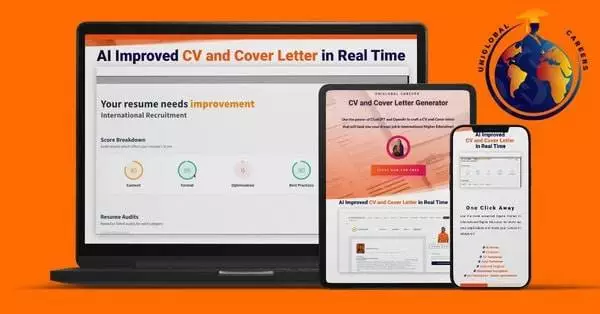If you are a project manager looking for a career change, then you may find that the field of international education has a lot to offer. The transition from project management to international education requires careful planning and preparation, but with the right approach, you can make a successful transition. In this article, we will explore the key differences between the two fields, identify transferable skills and experiences, and provide tips on how to assess your motivation and goals for a career in international education.
Understanding the Shift from Project Management to International Education
The fields of project management and international education have some similarities, but they also have significant differences. Project management typically involves managing projects within a specific organization, while international education is focused on promoting education and cultural exchange between countries. Therefore, transitioning to a career in international education requires more than just transferring your project management skills to a new field.
International education is a field that encompasses a wide range of activities, including study abroad programs, international student recruitment, and cultural exchange initiatives. Professionals in this field work to promote cross-cultural understanding and create opportunities for students to learn about different cultures and ways of life. International education is also focused on developing global citizens who are able to work and communicate effectively across borders.
Key Differences Between the Two Fields
The primary difference between project management and international education is the focus of the work. Project managers work within a specific organization, planning and executing projects to achieve specific goals. In contrast, professionals in international education work with a wide range of organizations, including universities, government agencies, and non-profit organizations, to advance education and cultural exchange across borders. This requires a different set of skills, including cross-cultural communication, intercultural competency, and knowledge of education systems in different countries.

Another key difference between the two fields is the level of collaboration involved. While project managers may work with a team of professionals within their own organization, international education professionals often collaborate with colleagues from different countries and cultures. This requires a high level of cultural sensitivity and an ability to navigate complex cultural differences in order to achieve shared goals.
Identifying Transferable Skills and Experiences
While the fields of project management and international education are different, there are many transferable skills and experiences that can be valuable in both fields. For example, project managers are skilled at managing timelines, budgets, and resources, which are essential in international education programs. They are also experienced in working with teams of professionals from different backgrounds, which can help in promoting cultural exchange.
Other transferable skills include strong communication skills, leadership, and an ability to adapt to changing situations. If you have experience working on international projects or with colleagues from different cultural backgrounds, then you may already have some of the skills needed for a career in international education.
Challenges and Opportunities in International Education
Like any career transition, moving from project management to international education can present both challenges and opportunities. Some of the challenges may include adjusting to a new work environment, navigating complex cultural differences, and building a new network of contacts. However, there are also many opportunities to learn new skills, expand your professional network, and contribute to a meaningful cause.
One of the most exciting opportunities in international education is the chance to make a real difference in the lives of students and communities around the world. By promoting cross-cultural understanding and creating opportunities for education and cultural exchange, international education professionals play a vital role in shaping the future of our global community.
Another opportunity in international education is the chance to travel and work in different parts of the world. Many international education professionals have the opportunity to work on projects in different countries, which can be a great way to learn about new cultures and gain valuable international experience.
In conclusion, while the fields of project management and international education may seem very different at first glance, there are many transferable skills and experiences that can be valuable in both fields. If you are considering a career in international education, it is important to be aware of the unique challenges and opportunities that this field presents. With the right skills, experience, and mindset, however, a career in international education can be both rewarding and fulfilling.
Assessing Your Motivation and Goals
Assessing your motivation and goals is an important step in determining whether a career in international education is right for you. While the potential for meaningful work and personal and professional growth may be attractive, it is important to consider whether your long-term goals align with the sector and whether you have a genuine passion for education and cultural exchange.
Why International Education Appeals to Project Managers
Project managers are often drawn to international education because of the potential for meaningful work that has a positive impact on people’s lives. In this field, project managers have the opportunity to work on programs that promote mutual understanding between people of different countries and cultures. This work can be incredibly rewarding, and can provide a sense of purpose and fulfillment that may be hard to find in other industries.
In addition to the potential for meaningful work, international education can also provide opportunities for personal and professional growth. Project managers in this field have the opportunity to develop cross-cultural competencies, improve language skills, and gain a deeper understanding of global issues. These skills and experiences can be valuable not only in the field of international education, but also in other industries and contexts.
Aligning Your Career Goals with the International Education Sector
Before making a career transition to international education, it is important to consider your long-term goals and how they align with the sector. For example, if you want to work in program development, you will need to understand the policies and practices of government agencies and organizations that fund international education programs. This may involve developing relationships with key stakeholders and staying up-to-date on the latest trends and best practices in the field.
Similarly, if you want to work in student services, you will need to understand the needs and priorities of international students. This may involve developing cultural competency skills and staying up-to-date on the latest research and best practices in the field of international student services.
Evaluating Your Passion for Education and Cultural Exchange
Another important factor to consider when assessing your motivation and goals is whether you have a passion for education and cultural exchange. International education professionals work to promote mutual understanding between people of different countries and cultures, and a genuine interest in this work can be critical to success in the field.
Consider your own experiences with international education or cross-cultural exposure, and whether those experiences have given you an appreciation for the value of this work. If you have a genuine passion for education and cultural exchange, and are committed to making a positive impact in the world, a career in international education may be the perfect fit for you.
Building Your Network in the International Education Field
Building a network is crucial in any field, and the international education field is no exception. A strong network can help you find new job opportunities, gain insights into the industry, and connect with like-minded professionals. Here are some ways to start building your network in the international education field:
Joining Professional Associations and Online Communities
Professional associations and online communities can be great resources for networking. Joining these organizations can provide opportunities to connect with other professionals in the field, attend conferences and events, and gain access to resources and information that can help you succeed.
Some popular professional associations in the international education field include NAFSA: Association of International Educators, the Forum on Education Abroad, and the Association of International Education Administrators. These organizations offer a variety of resources, including job listings, webinars, and professional development opportunities.

Online communities, such as LinkedIn groups and Reddit forums, can also be valuable resources for networking. These groups allow you to connect with professionals in the field, ask questions, and share information.
Attending Conferences and Networking Events
Attending conferences and networking events can be a valuable way to connect with others in the field, learn about new trends and best practices, and build relationships with potential employers. Look for events organized by professional associations, non-profit organizations, and government agencies to find opportunities to build your network.

Some popular international education conferences include the NAFSA Annual Conference & Expo, the Diversity Abroad Conference, and the Global Internship Conference. Attending these conferences can help you meet new people, learn about new opportunities, and gain insights into the industry.
Connecting with International Education Professionals on Social Media
Social media can be a powerful tool for building your network in international education. Consider following influential professionals in the field, participating in online discussions, and seeking out mentors who can provide guidance and support as you transition to a career in international education.
LinkedIn is a great platform for networking in the international education field. You can connect with professionals in the industry, join groups, and share your own insights and experiences. Twitter can also be a valuable resource for networking, as you can follow industry leaders and participate in industry-specific chats.
Building a network takes time and effort, but the rewards can be significant. By joining professional associations, attending conferences, and connecting with professionals on social media, you can start building a strong network that can help you succeed in the international education field.
Enhancing Your Skills and Knowledge for a Job in International Education
International education is a dynamic and exciting field that offers many opportunities for personal and professional growth. Whether you are just starting out or looking to advance your career, there are several ways to enhance your skills and knowledge and stand out in this competitive field.
Pursuing Relevant Certifications and Training Programs
One way to develop specialized skills and knowledge in international education is to pursue relevant certifications or training programs. These programs can help you stay up-to-date with the latest industry trends and best practices, as well as demonstrate your commitment to the field.

For example, the Intercultural Development Inventory is a widely recognized assessment tool that measures intercultural competence. This certification can be particularly useful for professionals who work with international students or in cross-cultural settings. Similarly, the International Education Management Certificate is a comprehensive program that covers topics such as international student recruitment, program development, and risk management.
Another popular certification is Teaching English as a Foreign Language (TEFL). This certification is particularly relevant for professionals who work with international students who are learning English as a second language.
Staying Informed on Industry Trends and Best Practices
As with any dynamic field, it is important to stay informed of trends and best practices in international education. This can help you anticipate changes and challenges, as well as identify opportunities for growth and development.
One way to stay informed is to subscribe to industry publications, such as the Journal of International Education or the Chronicle of Higher Education. These publications offer insights into current issues, research, and best practices in the field.
Another way to stay informed is to attend conferences and workshops. These events provide opportunities to network with other professionals, learn about new developments and emerging issues, and share your own experiences and insights.
Volunteering or Interning in International Education Programs
Finally, volunteering or interning in international education programs can be a valuable way to gain hands-on experience and build your network in the field. Look for volunteer or internship opportunities with non-profit organizations or government agencies that work in education or cultural exchange.
For example, you might consider volunteering with a local organization that provides English language instruction to refugees or immigrants. This experience can help you develop your teaching skills, as well as gain a deeper understanding of the challenges faced by international students.
Similarly, you might consider interning with a study abroad program provider or international student services office. This experience can help you develop your program management skills, as well as gain a better understanding of the administrative and logistical challenges involved in international education.
Overall, there are many ways to enhance your skills and knowledge in international education. By pursuing relevant certifications and training programs, staying informed on industry trends and best practices, and volunteering or interning in international education programs, you can position yourself for success in this exciting and rewarding field.
In Conclusion
Transitioning from project management to a job in international education requires careful planning and preparation, as well as a commitment to developing specialized skills and knowledge. However, with the right approach, it is possible to make a successful transition and find meaningful work in a growing and dynamic field. By understanding the differences between project management and international education, identifying transferable skills and experiences, assessing your motivation and goals, and building your network and enhancing your skills and knowledge, you can position yourself for success in this important field.


